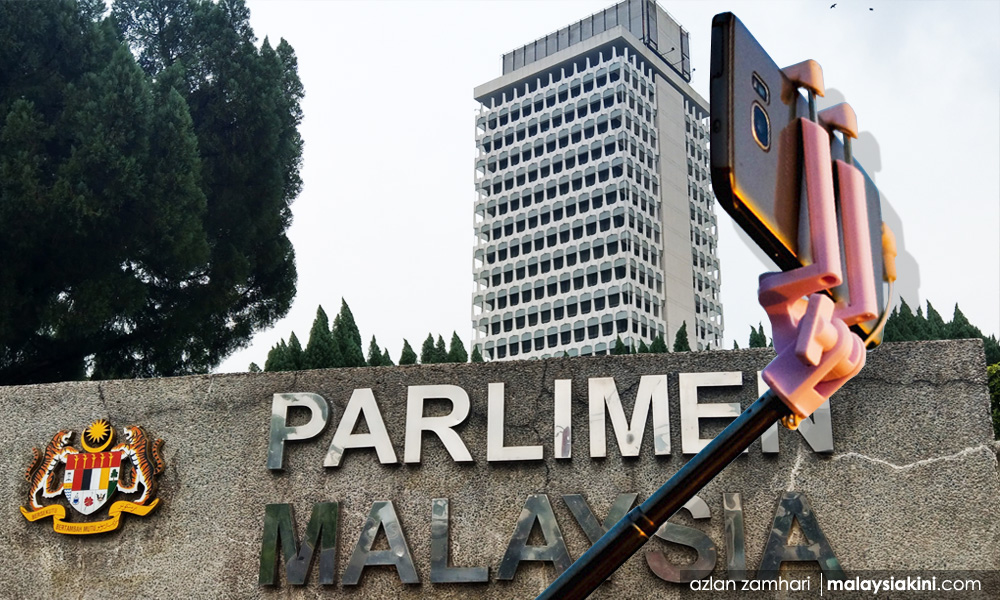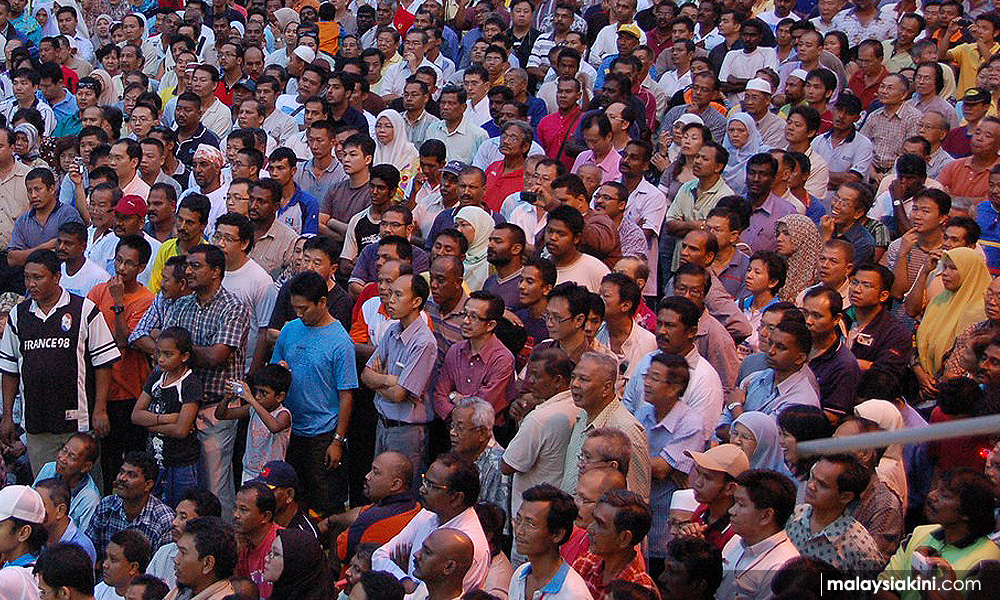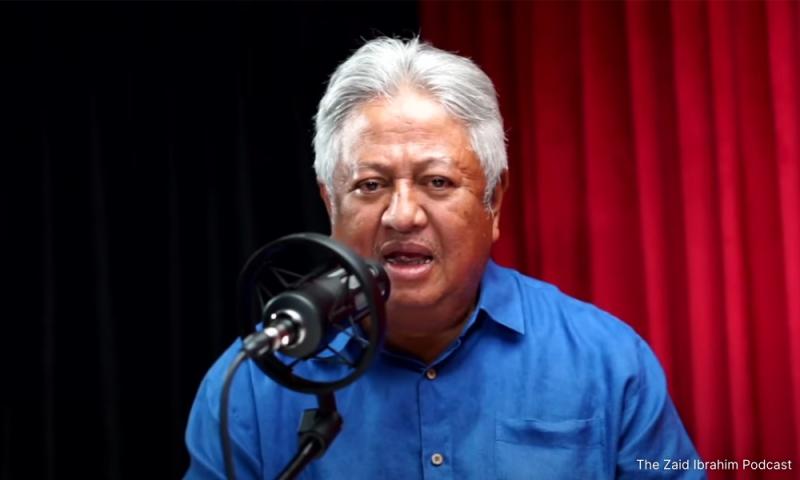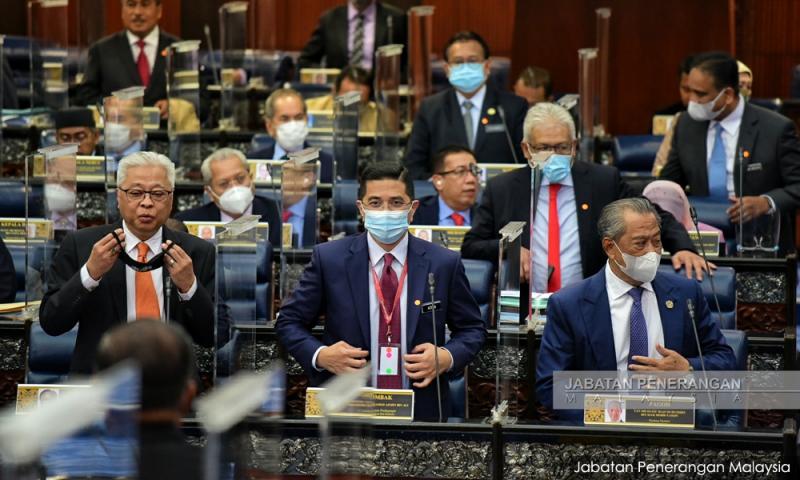COMMENT | I read with interest Liew Chin Tong’s article yesterday about how a return to Parliament is the solution for Malaysia right now, rejecting Prime Minister Muhyiddin Yassin’s emergency government and Dr Mahathir Mohamad’s idea of forming a National Operations Council or Mageran.
I can say that at first glance, Chin Tong's argument holds some merit. However, when he started writing about a new government having at least 120 seats, there is no doubt that this suggestion is a capitulation to collaborate with some in the current government to form yet another government which was not voted in. A Pakatan Harapan+Umno outfit, perhaps? If this is the case, I must ask how the very party that the masses had toppled just three years ago can be morally accepted to be part of a ruling coalition?
However, I want to go further to ask, is parliamentary democracy the solution for our nation, really? On paper, it screams people’s power, where the will of the masses is synthesized to decide on the direction of a nation. Yet we have had “parliamentary democracy” for over 60 years, and how has it empowered the masses?
Wages have stagnated, cost of living has skyrocketed, the environment continues to be destroyed in the name of profit, Orang Asal and Asli continue to lose their heritage land to developers and a racist coalition is leading the country.
It is time we realised that the romance of a “parliamentary democracy” tricks the masses into thinking their voices matter when in reality it does not. Thinking back to the Sheraton Move, when for a period of a week or two, politics was so fluid nobody could make out which parliamentarians belonged to which parties and which parties belonged to which coalition. Did the will of the people matter then? Did the masses have the power to dictate what their representatives need to do to accurately reflect their needs? No.
What we live in is a pseudo-democracy. The people are kept away from political power for most of their lives just to be asked to vote once every five years. They do not get to decide who stands at their constituencies, some don’t even have a clue on the background of their representatives. They simply are told to vote by logo. This is by design. The decision on who should stand where comes from the party, not the people. This is how someone from Permatang Pauh can stand in Port Dickson without much issue. It boils down to a popularity contest rather than based on actual policies. The people are made to depend on messianic figures, like the ones sitting in Port Dickson or Langkawi or Bagan, rather than being empowered from the grassroots to champion their own causes.
Instead of this ineffectual infatuation with electoralism, we need to turn back to the people themselves. Are we empowering them? If we are, the people of Kelantan would not be getting murky water or the people of Kirby Plantation would not be at the mercy of Sime Darby for their water supply.

There is something fundamentally wrong with the system such that the needs of the people are not met. This cannot be solved by Chin Tong’s wish-fulfilment politics as illustrated in his article. In one part, Chin Tong wishes for equal partnership as the cornerstone of the new government, for the prime minister to be a “chairperson of the board”, for a “problem-solving cabinet”, for Parliament to be “the avenue for national consensus and allow for collaborations” and for a legislation similar to UK’s Fixed-Term Parliaments Act of 2011.
While a good wish list, I fail to see how any of these will just magically happen.
In another part of the same article, Chin Tong lays out a “core agenda to heal the nation”. This includes “following the science” to approach Covid-19, a “Bangsa Malaysia” rejecting divisive racial ideas, an “economy for all”, reformed defence and security sectors and, most hilariously, a Malaysia without kleptocrats and corruption. Yet, I was left with one question. How?
It seems liberal politicians are so detached from the ground that they start coming up with solutions to problems from thin air. Instead of spending the time with grassroots communities, building their confidence, and strengthening their resolve to fight for their rights, we get boardroom bureaucrats navigating a floating, bloated ship steering us without any direction from the bottom.
In any of the above, Chin Tong does not talk about unionising. He does not talk about forming people’s committees to undertake activities under the #RakyatJagaRakyat banner. He does not talk about devolving power to the masses. He does not talk about people’s ownership of the means of production, self-governance at the workplace, inalienable rights to housing and so on. Everything is this top-down haze of elite politicians doing what is right.
At least if the premise is that Parliament must be preserved as an institution, Chin Tong could have suggested reforming Parliament further. For example, we can ensure there be standing representation from trade unions. Take the National Union of Workers in Hospital Support and Allied Services, for one. It is a huge union representing so many workers in multiple states, yet there is no direct avenue to air their concerns and get their voices heard.
In fact, sometimes the union workers have to take to the streets to be listened to, sometimes even get dragged to lockup for it. If Parliament has the space for workers’ representatives to directly bring their issues to the forefront, that can be a particular solution, a step towards the right direction.
With these not addressed, we must conclude that parliamentary democracy is dead. At least, as it is practised in Malaysian and every other liberal democratic country, it has been shown to be farcical.
It merely showcases progressivity while letting ethnofascists and neoliberals thrived. How else do we explain the 14 percent increase in the collective net worth of the richest Malaysians 2021 when the Malaysian GDP contracted by 5.6 percent?

We must turn back to the basics of community organising. Many times, with PSM we come up against “insurmountable” odds. Families come to us and ask to help them fight for the land that was promised to them. Unfairly dismissed workers come to us with their cases to get proper compensation. They are usually penniless and seemingly powerless. Yet they win, time and again.
How? Well, if you unite 30 or 40 people from the same area with the same problems and get them to demand what is rightfully theirs, through a memorandum or a dialogue or even a protest, it works!
Without engaging the masses, educating them and uniting them to protect each other and fight against their oppressors, there is no hope in transforming the system into a more inclusive one. If we want higher wages, we fight, as we fought for minimum wage which was won in 2012. If we want more protection against retrenchment, we fight, as we fought for the Employment Insurance System which was won in 2018. This is the missing link in Chin Tong’s desired end state.
In the pursuit to engage in politics within the system, we must not lose sight that the system itself is biased and broken beyond repair. We must not forget that the point of politics is not one side winning against the other; it is the empowerment of the common man against their oppressors to enable them to achieve their dreams and desires.
It is in uniting those within the same class regardless of ethnicity, gender or sexuality, to take care of one another against forces that may harm them. It is about going to the grassroots, learning the true issues and needs of the people and changing the system to ensure these flow up. Until the power wielded by parliamentarians is made available to the common man, parliamentary democracy will never be the solution for our nation.
ARVEENT KATHIRTCHELVAN is PSM Youth's head of the science and technology bureau.
The views expressed here are those of the author/contributor and do not necessarily represent the views of Malaysiakini.





